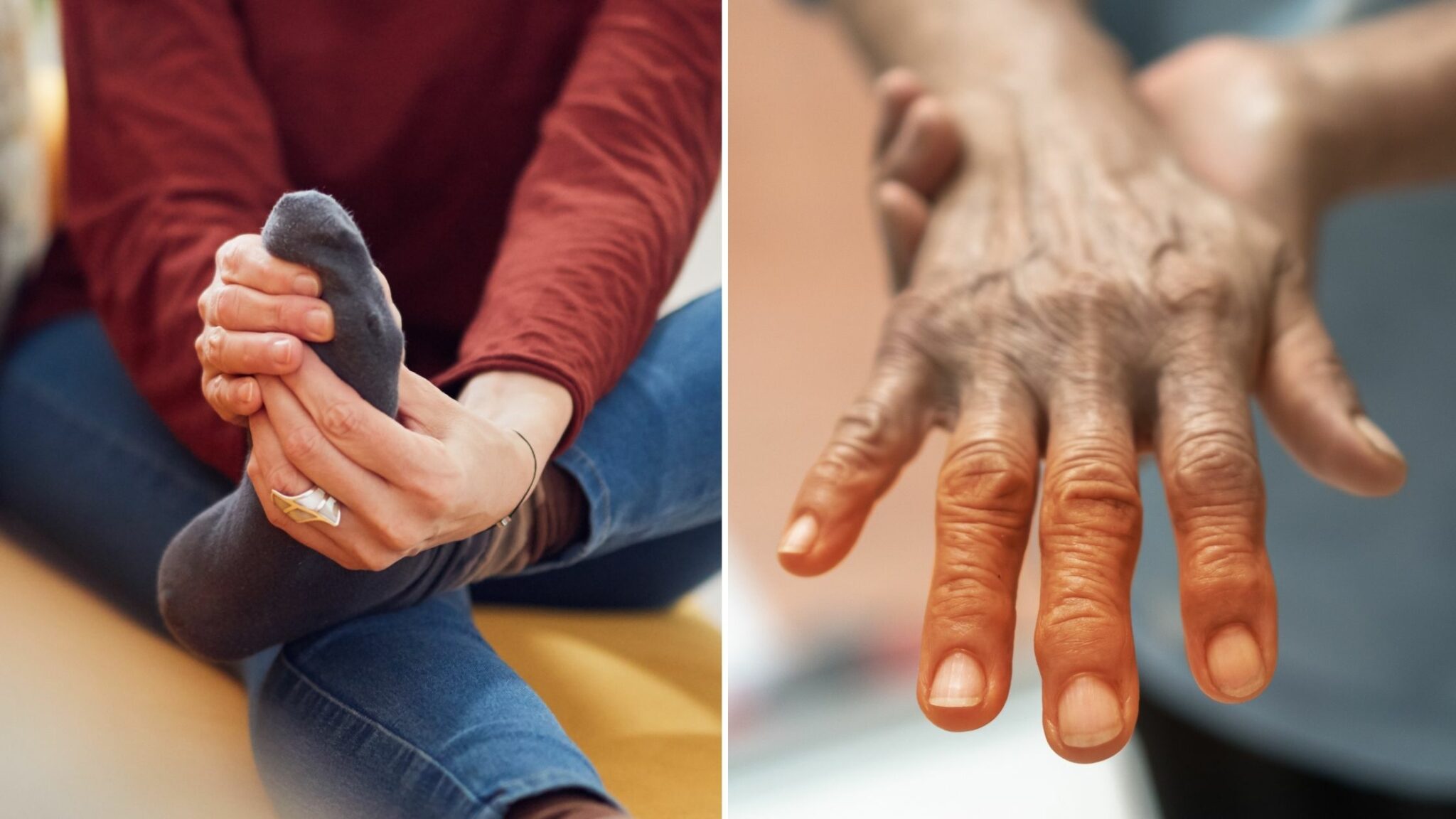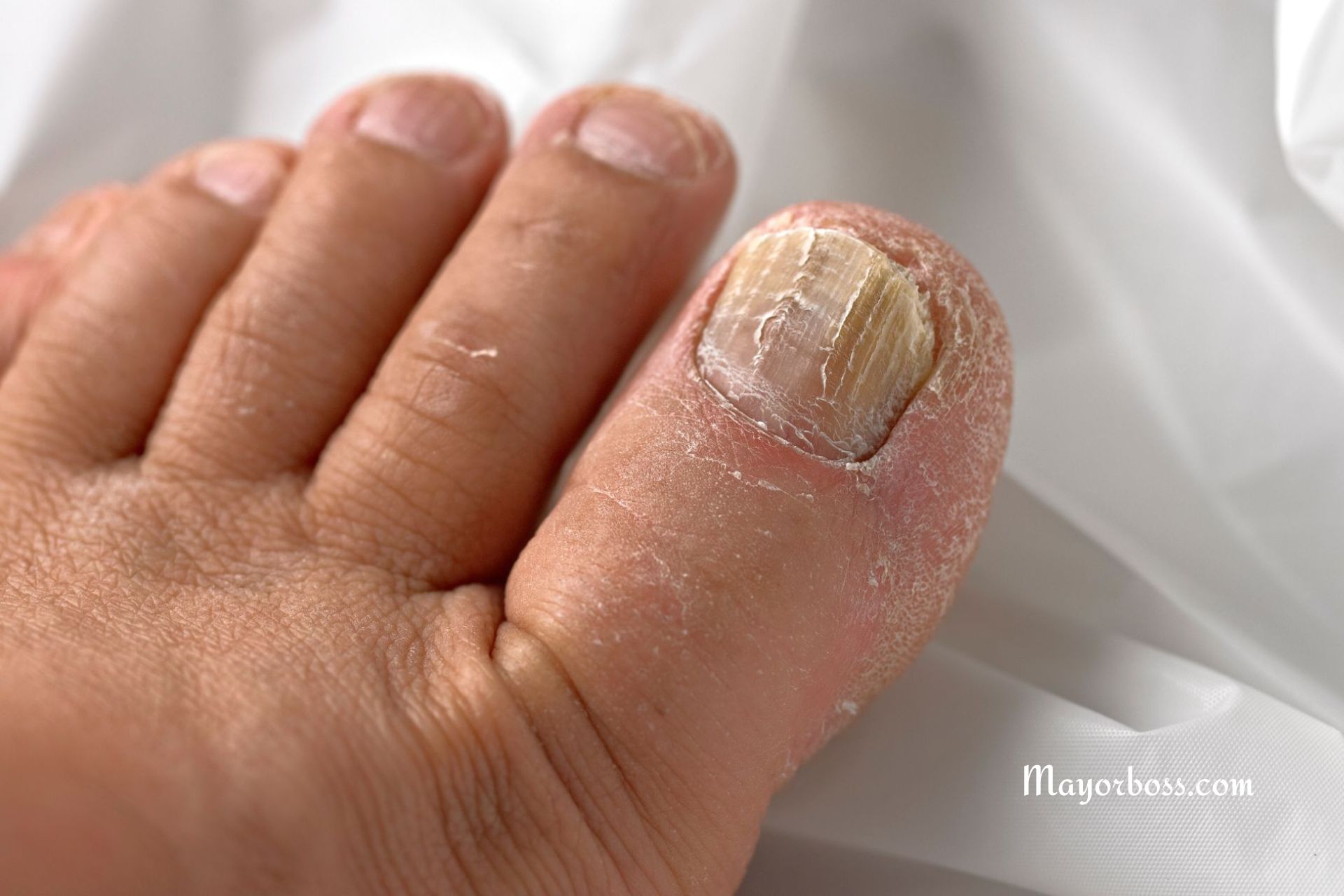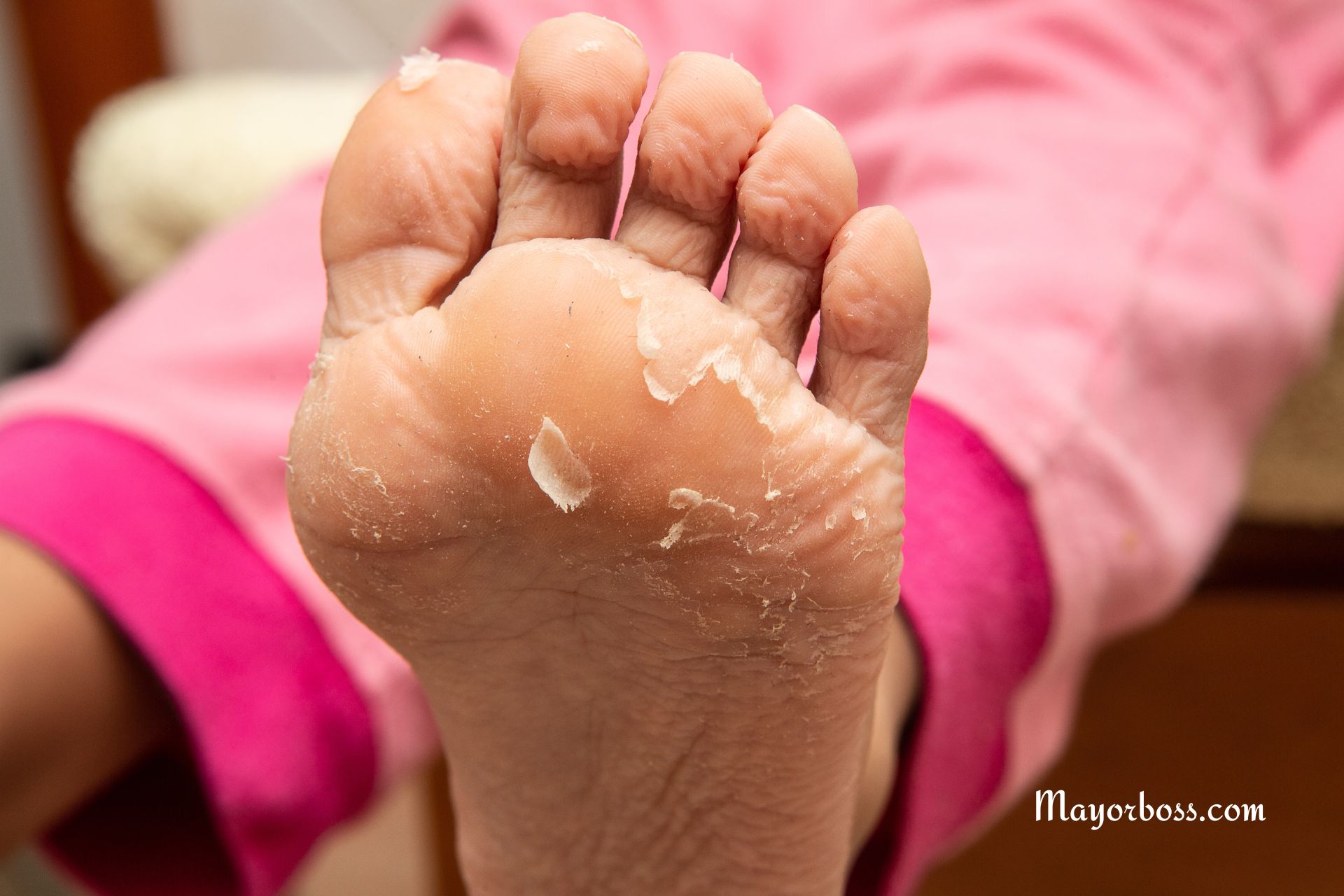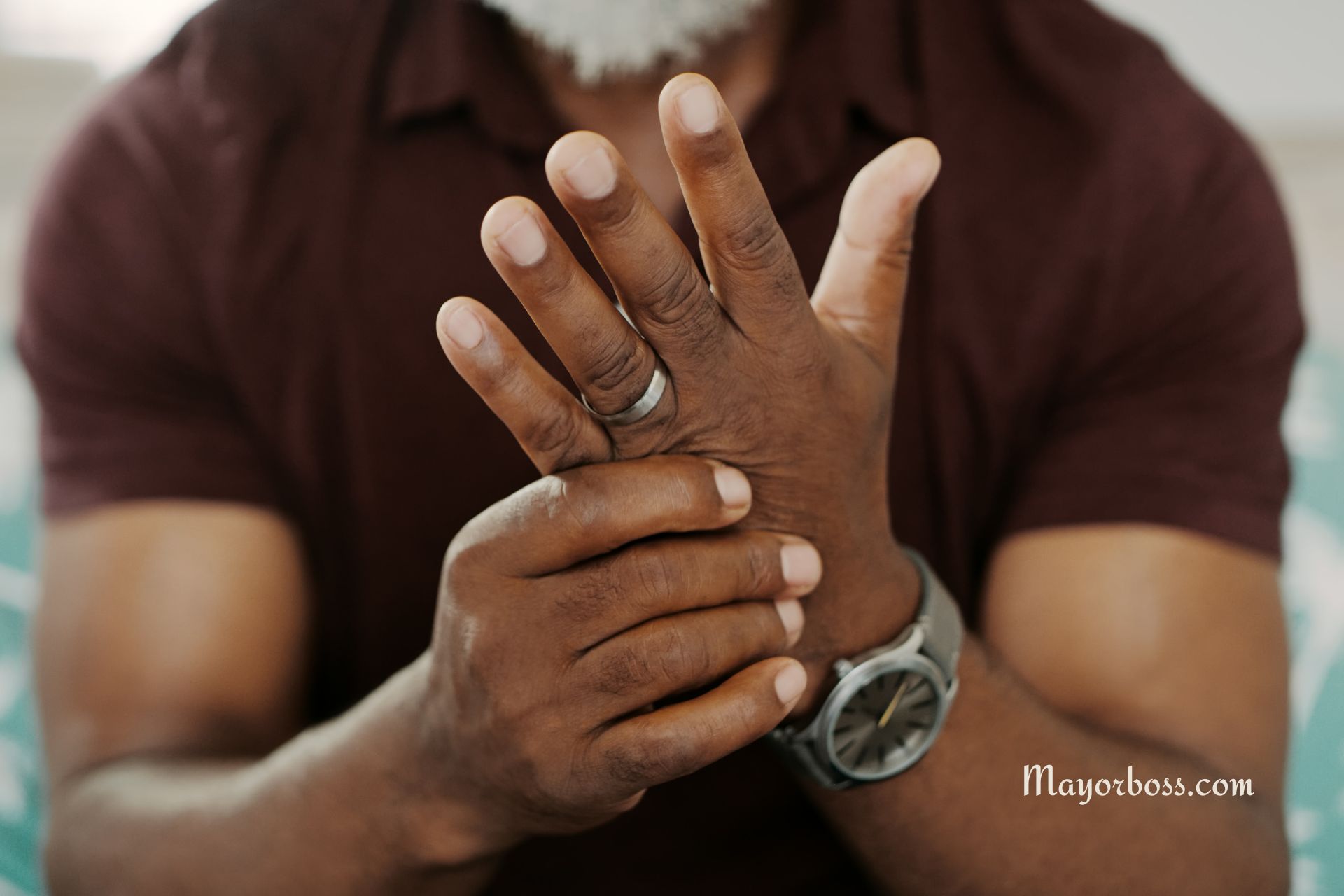How to Stop the Pins and Needles Feeling in Hands and Feet
The sensation of pins and needles in your hands or feet can be both annoying and uncomfortable. The tingling or prickling feeling is also known as paresthesia, and while it’s often temporary and harmless, it can sometimes be a sign of something more serious. Scroll through below to learn the common causes and some practical ways to manage it.

Pins and Needles Are Often Caused by Pressure on the Nerves
Typically, the feeling of pins and needles happens because there’s pressure on the nerves. If you’ve ever crossed your legs for too long or slept with your arm pinned under your body, you probably felt a tingling sensation when you shifted positions. That’s the nerve signaling that it’s been compressed. Once the pressure is removed, blood flow improves, and the tingling fades.
According to health experts, this form of paresthesia is short-lived and goes away as soon as normal circulation resumes. So, if you’re sitting awkwardly or lying in a position that presses on your nerves, the best solution is to simply adjust your posture.
If Your Hands and Feet Fall Asleep Often, You Should Take Breaks More Frequently
Another thing that may be causing the sensation of pins and needles is repetitive motion or staying in the same position for too long. For example, typing on a keyboard for long hours or standing in one spot can lead to nerve irritation. Health experts advise taking regular breaks to prevent this. Get up and move around every 30 minutes or so to keep blood circulating properly, especially if you work in a job that requires you to sit or stand for extended periods.
Even stretching out your hands, wrists, and feet can help relieve tension. According to the American Academy of Orthopaedic Surgeons, exercises that focus on improving circulation and strengthening muscles around the nerves may lower the risk of experiencing this uncomfortable sensation.
Nutritional Deficiencies Can Lead to Tingling in Your Limbs
While most cases of tingling resolve quickly and don’t need medical attention, persistent paresthesia can sometimes indicate a nutritional deficiency. For instance, low levels of vitamins such as B12, B6, or E can interfere with nerve health, leading to numbness or tingling in the extremities.
According to the National Institutes of Health (NIH), a lack of vitamin B12 can cause nerve damage over time. If you find that the pins and needles sensation doesn’t go away or keeps coming back, talk to your physician about testing for vitamin deficiencies. A simple blood test can determine if supplements or dietary changes are needed.
Diabetes Can Also Cause Chronic Pins and Needles
Diabetes is another common cause of chronic pins and needles. For those living with this condition, high blood sugar levels can damage nerves over time, particularly in the hands and feet. This nerve damage, medically known as diabetic neuropathy, can cause persistent tingling, numbness, or pain.
The Mayo Clinic explains that controlling blood sugar levels is essential in preventing and managing diabetic neuropathy. If you have diabetes and are experiencing regular tingling in your hands or feet, it’s important to work with your doctor to monitor your blood sugar levels and manage your condition. This may involve changes in diet, exercise, or medication.
Carpal Tunnel Syndrome and Other Nerve Conditions Can Be Behind the Sensation
If the tingling sensation is concentrated in your hands and seems to be worse at night, you might be dealing with carpal tunnel syndrome. According to the Cleveland Clinic, this condition occurs when the median nerve, which runs from your forearm into your palm, becomes compressed. It’s more common in people who use their hands a lot for work, such as typing or using vibrating tools.
In addition to carpal tunnel syndrome, other conditions like sciatica, where the sciatic nerve is compressed, or cervical spondylosis, a type of arthritis that affects the neck, can lead to tingling sensations in different parts of your body.
If you suspect that your tingling is related to a specific nerve issue, see your doctor for further evaluation. Treatment options might include physical therapy, wrist splints, or, in some cases, surgery to relieve nerve pressure.
Exercise, Weight Loss, and Movement Are Effective for Preventing the Pins and Needles Feeling
One of the simplest ways to prevent pins and needles in your hands and feet is to stay active. Regular exercise can improve circulation and help maintain a healthy weight, both of which reduce the pressure on your nerves. Additionally, moving regularly helps your body avoid prolonged positions that can lead to tingling.
The Mayo Clinic recommends incorporating a combination of aerobic exercises, strength training, and flexibility exercises into your routine to keep your muscles and nerves healthy. Walking, swimming, yoga, and weight training are all great options to boost circulation and overall well-being.
If You Have Tingling After an Injury, You Should See a Doctor Promptly
In some cases, tingling in your limbs can follow an injury. For example, a herniated disc in your back could press on nerves that affect your legs or feet, hence leading to a tingling sensation. Similarly, a broken bone or severe sprain might cause swelling that presses on nearby nerves.
In these situations, it’s important to see your doctor promptly. They will be able to assess the injury and recommend appropriate treatment, which could include medication, physical therapy, or surgery, depending on the severity of the nerve compression.
Managing Chronic Conditions Can Help Reduce Persistent Tingling Sensations
For individuals with chronic conditions like multiple sclerosis (MS), lupus, or fibromyalgia, tingling and numbness may be part of their day-to-day symptoms. While there’s no cure for these conditions, managing them effectively with the help of your physician can minimize the severity of these sensations.
Doctors say that treatment often involves medications to manage pain and inflammation, along with lifestyle changes to maintain overall health. If you have a chronic condition and notice that the tingling is becoming worse or more frequent, talk with your doctor about adjusting your treatment plan.
Stress and Anxiety Can Trigger Pins and Needles
Interestingly, stress and anxiety can also trigger pins and needles sensations in your limbs. When you’re stressed or anxious, your body goes into fight-or-flight mode, releasing hormones like adrenaline that can cause physical symptoms. Tingling, especially in the hands and feet, can be one of these responses.
If you notice that the tingling happens more often during periods of high stress, it might be helpful to practice relaxation techniques such as deep breathing, meditation, or yoga. According to the American Psychological Association, these methods can help calm the nervous system and reduce the physical symptoms of stress.
If the Pins and Needles Don’t Go Away, You Should Seek Medical Help
While most cases of pins and needles are harmless and temporary, persistent or worsening tingling could indicate a more serious underlying issue. If you experience tingling that lasts for a prolonged period, is accompanied by muscle weakness, or spreads to other parts of your body, it’s time to seek medical attention.
In rare cases, persistent tingling could be a sign of a stroke, particularly if it’s accompanied by other symptoms such as sudden weakness, confusion, difficulty speaking, or trouble walking. If you experience these symptoms, call emergency services immediately.
The Bottom Line
In most cases, pins and needles in your hands and feet are nothing to worry about and go away on their own. However, if the sensation persists, worsens, or is accompanied by other concerning symptoms, it’s important to talk with your doctor. Whether it’s related to your posture, diet, or an underlying health condition, addressing the cause of your tingling is key to finding relief.






